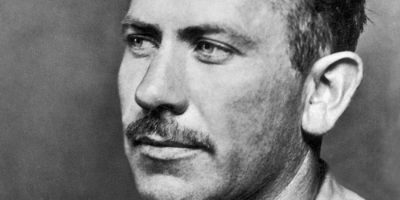
A portrait of Gamal Abdel Nasser by a not credited author –Wikimedia commons
Top 10 Facts about Gamal Abdel Nasser
Gamal Abdel Nasser Hussein was born on 15 January 1918 and passed on 28 September 1970. He was an Egyptian politician who served as the second president of Egypt from 1954 until his death in 1970. Nasser led the Egyptian revolution of 1952 and introduced far-reaching land reforms the following year.
Following a 1954 attempt on his life by a Muslim Brotherhood member, he cracked down on the organization, put President Mohamed Naguib under house arrest and assumed executive office. He was formally elected president in June 1956. In the article are top ten facts about Gamal Abdel Nasser.
1. Gamal Abdel Nasser was the second President of Egypt
Gamal Abdel Nasser served as the second President of the Arab Republic of Egypt, occupying the position from 1956 until his untimely demise in 1970. During his tenure, he was a galvanizing figure in the Arab nationalist movement, and his policies, particularly the nationalization of the Suez Canal and support for pan-Arabism, earned him both admiration and opprobrium. Despite the controversies surrounding his leadership, he remains a seminal figure in the annals of Egyptian and Middle Eastern politics.
2. He played a key role in the 1952 coup
The 1952 coup d’état, also known as the July 23 revolution, was a seminal event in the history of Egypt, which resulted in the overthrow of the democratically elected government of Prime Minister Muhammad Naguib, and the establishment of a republic under the leadership of Gamal Abdel Nasser.
The coup was orchestrated by a group of army officers and civilian politicians who were dissatisfied with the slow pace of political and economic reforms under the existing government. The coup was executed with military precision and resulted in the swift seizure of key government buildings and the arrest of leading political figures.
The coup was also characterized by popular support, with many Egyptians seeing it as a necessary step to rid the country of corrupt politicians and to usher in a new era of progress and prosperity.
3. Nasser was a major figure in the Arab nationalist movement and a leader of the Non-Aligned Movement
Gamal Abdel Nasser was a preeminent figure within the Arab nationalist movement, and his leadership played a crucial role in shaping the political and ideological landscape of the Arab world. He was known for his fervent belief in the unity and strength of the Arab people, and his speeches and writings on the subject were widely read and admired.
He also played a leading role in the Non-Aligned Movement, an organization of states that sought to promote cooperation and solidarity among nations that were not formally aligned with or against any major power bloc. Nasser’s commitment to non-alignment and his efforts to promote cooperation among developing nations earned him the respect and admiration of leaders from around the world.
4. He nationalized the Suez Canal in 1956
In 1956, Gamal Abdel Nasser made the controversial decision to nationalize the Suez Canal, an action that had far-reaching implications for both Egypt and the international community. The nationalization of the canal, which was a vital waterway for international trade and commerce, was met with fierce opposition from the West and led to the Suez Crisis, a political and military standoff between Egypt and several Western powers.
The crisis, which was marked by the deployment of military forces and the imposition of economic sanctions, had a profound impact on international relations and served to exacerbate tensions between Egypt and the West. Nasser’s decision to nationalize the canal was motivated by a desire to exert greater control over the country’s resources and to assert Egypt’s sovereignty, but it ultimately resulted in a significant deterioration of relations with Western nations.
5. Nasser supported pan-Arabism and worked to unite the Arab world
Gamal Abdel Nasser was a fervent advocate of pan-Arabism, a political ideology that emphasizes the unity and cooperation of the Arab people. He dedicated much of his political career to the pursuit of this goal and sought to bring about the unification of the Arab world through a variety of means, including political and economic cooperation.
Nasser’s vision for pan-Arabism was ambitious and far-reaching, and it was characterized by a belief in the importance of Arab solidarity and the need to transcend narrow, parochial interests in the pursuit of a greater goal.
He embarked on various initiatives to promote regional integration and cooperation, including the formation of the United Arab Republic, a short-lived union between Egypt and Syria, and the establishment of the Arab League, a regional organization of Arab states.
6. He implemented a range of social and economic policies
During his tenure, Gamal Abdel Nasser implemented a comprehensive set of social and economic policies to ameliorate the plight of ordinary Egyptians. These policies included land reforms, aimed at redistributing wealth and promoting social justice, as well as the nationalization of key industries, such as the Suez Canal, with the intention of fostering greater state control over the country’s resources and promoting economic development.
Additionally, Nasser’s government also embarked on ambitious public works projects, such as the construction of the Aswan High Dam, to modernize the country’s infrastructure and improve the standard of living for its citizens. Overall, Nasser’s policies were driven by a commitment to social justice and economic development, and they were intended to uplift the most disadvantaged segments of society and promote the general welfare of the nation.
7. He was a popular leader, with many Egyptians seeing him as a hero who stood up to foreign powers
Gamal Abdel Nasser was a charismatic and polarizing figure, who enjoyed a tremendous level of popular support among the masses. He was widely regarded as a hero, who dared to stand up to foreign powers and assert the sovereignty and independence of Egypt. His speeches and writings were characterized by a powerful sense of nationalism and anti-colonialism, which resonated deeply with the Egyptian people, who had long been subjugated by foreign powers.
He was also seen as a leader who was willing to take bold and decisive action to improve the lives of ordinary Egyptians, and his policies and initiatives, such as land reforms and the nationalization of key industries, were widely popular among the people. Nasser’s popularity was such that, it transcended the boundaries of Egypt and he became a symbol of resistance and hope for the Arab world.
8. He was a strong advocate of the Palestinian
Gamal Abdel Nasser was a vocal advocate for the Palestinian cause and an ardent supporter of Palestinian liberation groups. He recognized the plight of the Palestinian people and the injustices they had suffered at the hands of the Zionist movement, and he dedicated himself to the pursuit of their rights and self-determination.
He provided political and material support to various Palestinian liberation organizations, and his speeches and writings on the subject were widely read and admired by the Arab world. He also sought to mobilize the support of other Arab countries and to build a united front against the Zionist occupation of Palestine.
Nasser’s commitment to the Palestinian cause was rooted in a belief in the importance of Arab solidarity and the need to support the oppressed and marginalized. He saw the Palestinian struggle as an integral part of the Arab struggle for freedom and justice, and he worked tirelessly to bring about a just resolution to the conflict.
9. Nasser’s policies ultimately failed to improve Egypt’s economy
Despite the initial popularity and promise of his policies, the administration of Gamal Abdel Nasser ultimately failed to achieve the desired economic outcomes for Egypt and its citizens. Despite ambitious plans for land reforms and the nationalization of key industries, the country’s economy struggled to gain traction, and the standard of living for many Egyptians remained stagnant.
Additionally, the authoritarian nature of his rule, which included suppression of political dissent and the establishment of a one-party state, led to a restriction of civil liberties, and the repression of political opponents. The failure of Nasser’s policies to bring about the desired economic and social improvements, coupled with the increasing authoritarianism of his regime, ultimately led to a decline in his popularity and a growing sense of disillusionment among the people.
10. Nasser supported leftist and anti-colonial movements around the world
Gamal Abdel Nasser was a vocal supporter of leftist and anti-colonial movements around the globe, and his foreign policy was characterized by a commitment to non-alignment and anti-imperialism. He provided political and material support to various leftist and anti-colonial movements, including those in Africa and Latin America, and his speeches and writings on the subject were widely read and admired by the Third World.
He also sought to promote cooperation among developing nations and to build a united front against the hegemony of Western powers. Nasser’s support for leftist and anti-colonial movements led to tensions with the United States and other Western countries, who viewed him as a disruptive force and a threat to their interests.
He was also seen as a leader who was willing to take bold and decisive action to improve the lives of people in other countries, and his policies and initiatives, such as the nationalization of key industries, were widely popular among the people.
Planning a trip to Paris ? Get ready !
These are Amazon’s best-selling travel products that you may need for coming to Paris.
Bookstore
- The best travel book : Rick Steves – Paris 2023 – Learn more here
- Fodor’s Paris 2024 – Learn more here
Travel Gear
- Venture Pal Lightweight Backpack – Learn more here
- Samsonite Winfield 2 28″ Luggage – Learn more here
- Swig Savvy’s Stainless Steel Insulated Water Bottle – Learn more here
Check Amazon’s best-seller list for the most popular travel accessories. We sometimes read this list just to find out what new travel products people are buying.









